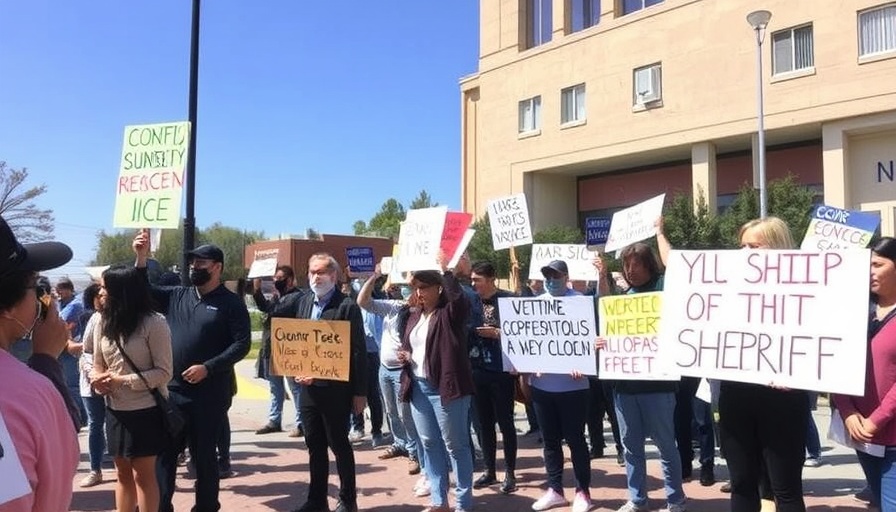
Profound Tensions Emerge Over ICE Cooperation in Contra Costa County
In Contra Costa County, a fierce debate bubbled to the surface as immigration advocates staged a protest calling on Sheriff David Livingston to cease his cooperation with U.S. Immigration and Customs Enforcement (ICE). Gathered outside the county's board of supervisors building, dozens expressed their fears regarding the sheriff's collaboration with ICE, arguing that local law enforcement should not be complicit in what they describe as a "deportation machine" targeting vulnerable members of the community.
As tensions escalated during the board meeting, protester Laura Eberly passionately stated, "No cooperation with ICE. Our local resources... shouldn’t be picking our neighbors up and handing them over to this deportation machine to disappear them." This sentiment resonates with many residents who believe that local authorities should prioritize community support over federal enforcement collaboration.
The Sheriff’s Defense: A Balancing Act of Safety
Despite the growing discontent, Sheriff Livingston staunchly defended his position, revealing that of the 578 requests for ICE notifications last year, he only acted on 132, primarily concerning violent offenders. He expressed his belief that it is his duty to inform ICE about undocumented individuals who commit crimes in the county, reinforcing his commitment to public safety. "When you have individuals that are in the country illegally... we have an obligation to notify ICE," he stated.
While some board supervisors echoed the community's outrage over ICE's controversial tactics, calling for a county ordinance to completely sever cooperation with the agency, others recognized the sheriff's stance. Supervisor Ken Carlson articulated the community's sentiments: "Our deputies put in time dealing with ICE, and our community doesn't want it. Let's just not do it." This response highlights the divisions in opinion surrounding immigration enforcement and community safety.
Looming Questions About Law Enforcement's Role
The ongoing conflict raises vital questions regarding the relationship between local law enforcement and federal immigration policies. As public sentiment leans toward protecting vulnerable populations, the Sheriff remains firm in his view that cooperation with ICE is necessary for public safety. Critics argue that this cooperation exacerbates fears within immigrant communities, creating an environment of distrust and potential reporting hesitancy for crimes.
Looking Ahead: The Future of Immigration Policy in Local Law Enforcement
As this issue gains traction, it invites broader discussions about the role of local law enforcement in federal immigration matters. How can communities find a balance between maintaining public safety and supporting immigrant populations? The outcome of such discussions may well shape public policy and local law enforcement protocols going forward.
Now more than ever, communities are called to engage in dialogues about safe spaces and equitable treatment for everyone.
 Add Row
Add Row  Add
Add 



Write A Comment